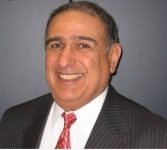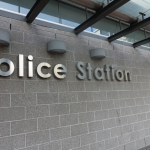Victory Against Anti-Islam Group: An Interview with Halal Certification Authority Director Mohamed El-Mouelhy

The Q Society and anti-halal campaigner Kirralie Smith have publicly apologised to Mohamed El-Mouelhy, the director of the Halal Certification Authority. At a meeting on Monday, the anti-Islam organisation agreed to make an out of court settlement over the defamation case brought against them.
Mr El-Mouelhy brought the action against the Q Society, its national president Debbie Robinson, Ms Smith and two other board members, over two videos the organisation posted on YouTube in 2015.
The anti-halal campaign
The videos featured Ms Smith discussing halal certification. And as Mr El-Mouelhy alleged, they accused him and the industry in general of “promoting a global push for Islamisation calculated to destroy Australian values of freedom and tolerance.”
Kirralie Smith has been leading a campaign against halal food since she launched the Halal Choices website in 2011. She’s made claims that the proceeds from halal certification fund terrorist groups and that the fees charged for the service act as a “religious tax,” and drive food prices up.
Ms Smith’s claims about halal certification have gained the backing of conservative politicians such as Jacqui Lambie and Cory Bernardi. And this actually led to a senate inquiry into the industry.
The accusations are groundless
The senate inquiry’s 2015 report found no links between halal certification and terrorist organisations. The committee also found that while practices like organic certification do led to higher prices, there’s no evidence that halal certification does.
If you take a look at products on the shelves of supermarkets across Australia, there are different stamps upon the packaging. These range from Australian owned to gluten-free, kosher and genetically modified. But the halal stamp seems to be the only one that causes so much controversy.
Halal in Australia
“Halal” is an Arabic word that means permissible, and it can pertain to any aspect of life covered by the teachings of Islam. Muslims choose to eat halal food because it’s been prepared in a way that meets the requirements that make it suitable for consumption.
Halal certification in Australia generates around $13 billion in food exports a year.
“It’s an industry that’s been with us for about four decades,” Australian deputy prime minister Barnaby Joyce told the ABC’s Four Corners. “What I can say, without our capacity to sell product into Islamic countries that would be quite devastating.”
The society reneges
Last Monday, members of the Q Society, including Ms Smith, signed a joint apology. “The Q Society… apologise to Mr El-Mouelhy for the hurt caused to him as a result of the publications,” the statement reads.
Sydney Criminal Lawyers® spoke with the director of the Halal Certification Authority Mohamed El-Mouelhy about halal food, the controversy being caused by far-right organisations and his recent victory.
Firstly Mr El-Mouelhy, I’d like to say congratulations on receiving the settlement with and an apology from the Q Society on Monday.
Thank you very much indeed.
So you received both the settlement and the apology, but why didn’t you take the matter all the way to court?
I actually relied on my religion. This is Sharia. It’s very important for me to follow my religion. And the Sharia tells me that if the other side ceases hostilities, I have to cease hostilities. If they lean towards peace, then I have to lean towards peace. And that’s what happened.
In actual fact, the Sharia that they’re against, has saved their bacon.
You were suing the Q Society over two videos they posted on YouTube. They featured Kirralee Smith making damaging remarks about your reputation and halal certification in general.
What was she actually saying?
Well, she was saying that it’s a furphy. It’s something that shouldn’t happen. She was saying things like corruption. She was making accusations.
What impact did these remarks have upon the Halal Certification Authority, and on you personally?
On me personally, well, when your daughter gets messages saying that they will rape her, how would you feel?
And contacting our clients, by the thousands a day, to the point where some of the clients actually called the police, because of the threats they were getting on the phone. People were saying that they won’t buy their products. That they will burn their places.
These things should never have happened. So in actual fact, they say that they haven’t proposed that these people do this, but they didn’t discourage it either.
So these videos led to people making these threats?
Absolutely. Not just the videos, the write-ups and all those things.
There’s still a very vocal minority of Anglo-Australians out there in groups like Reclaim Australia and the United Patriots Front, as well as political movements such as One Nation, who continue to claim that halal food certification is supporting terrorism.
This is despite a senate inquiry into the practice that asserted in its 2015 report that there were no links between halal certification and terrorism.
Why do you think these groups are continuing to make these assertions?
Because they can’t accept reality.
If you say that something they’re standing on, which is really their only platform that halal certification shouldn’t be there, and then suddenly you’re told that halal certification is good for the country, that it brings in $13 billion dollars a year, it employs 60,000 in the meat works alone – and they’re not Muslims, probably the Muslims number no more than 300 – when you suddenly remove that platform from under their feet, what can they do?
They have no platform. And the intelligence that they have doesn’t allow them to think of another platform very quickly.
How do you describe the concept of halal? And how does it relate to food preparation?
Halal is really a system of audits. It’s a type of quality control.
When you get halal, or you get kosher, you’re actually getting a second audit. You’re getting a second type of control. So you know that it’s of a certain quality.
I’m not saying that it improves the food, but you know that what you get is what you really wanted to get.
What’s the purpose of making food halal?
Exports, mainly.
If you rely on the Muslim community here in Australia – it’s only 476,000 – really it’s not going to bring you much money. So really and truly, halal certification is aimed at exports. And that’s why it brings $13 billion to the country, and it’s increasing by 10 percent a year.
So this year it will be probably about 15 or 16. Who knows?
This is nearly 40 percent or more of all total exports.
Your organisation, the Halal Certification Authority, carries out a process to make sure a company’s food is prepared to halal standards. What’s the process that you follow?
The process that is followed is that first you have an application form. You have to fill out the application and give all the information. Then there’s a desk audit, and this means the products are actually checked. Every single piece of information is checked to make sure that it’s absolutely true.
You get in touch with the supplier of the applicant and make sure that they’re complying or they have certificates originally. So if they have certificates for their ingredients, it makes it easier for the applicants and it quickens the service.
Then you have an audit, a physical audit. And then you enter into an agreement, which allows us to go there unannounced. It allows us to audit the place, whenever we get a complaint or something. And then, when that is all done and everybody’s satisfied, we send the certificate on payment of the fee.
It’s a fee for a service.
Now what you have to understand is that we have, behind the scenes, a technical committee that decides whatever product is acceptable from a technical side. We have a Sharia committee, which decides whether religiously it complies.
And we have another committee to make sure that we are impartial. This means that a company can apply to us and say to us, and they do, “Can you give us a certificate, but don’t give one to our competitors for two years.”
Well, we can’t do that. If their competitors want to apply, then they have the same rights.
Otherwise, the impartiality committee will say, “What the hell is going on?” And we would get a non-conformance.
These people are actually not visible to the companies, or to the man in the street.
The Halal Certification Authority doesn’t take any royalties from the products it certifies. Companies pay a set fee. Can I ask where do the profits from the service you provide go to?
I think this is an impertinent question. It’s none of your business.
Understood.
It’s exactly the same as your salary. I can ask you, “What do you spend your salary on?” This is exactly the same.
We spend the money here on paying the staff, paying rent, electricity, gas, all those sorts of things, like any other company. And we give to charity and that’s it.
Halal is a centuries old way of preparing food, and it happens around the globe.
Exactly. Halal has been in Australia from the time the first Muslims arrived with their camels. Actually, there were some Muslim prisoners the British brought from Jamaica, or the Caribbean.
So Muslims have always been in Australia. Besides that, in the 1600s, the Macassans were coming from Indonesia. They traded with the Aboriginal people and they intermarried as well.
So Muslims were here before the British, the French and the Dutch came to this country.
Muslims have always eaten halal. They might have slaughtered their own sheep, or their own animals that they were going to eat. This happened until the 70s, but then the number of Muslims increased and you needed a system where you could certify.
This was originally from Malaysia and Saudi Arabia, they were requiring these things. It was instituted and the local people found that it was helpful to have a certificate.
But I’m telling you, there are false certificates around and there are people who are putting certificates that belong to other companies in their shops. So there’s a lot of corruption that’s happening with certification.
But not by the certifiers, it’s happening with the industry.
And lastly, this is a centuries old way of preparing food. It means that people of the Islamic faith can eat food that’s been prepared in this manner.
So why do you think these far-right groups in Australia have focused on halal food specifically and singled it out to be vilified?
These people are actually interconnected worldwide. They learn from each other and they work with each other. And they get funding from organisations abroad. So that’s one thing.
The other is they think they should attack halal because it’s the soft underbelly of the Muslim community, because it’s bringing money. These societies are about not letting any Muslim put his head above water, either politically or financially.
So that’s what they do. But they’ve found the wrong man.
Mr El-Mouelhy thank you very much for taking the time out to speak with Sydney Criminal Lawyers®.
My pleasure.
And once again, congratulations on the settlement and the apology you received from the Q Society.
Thank you very much indeed.







